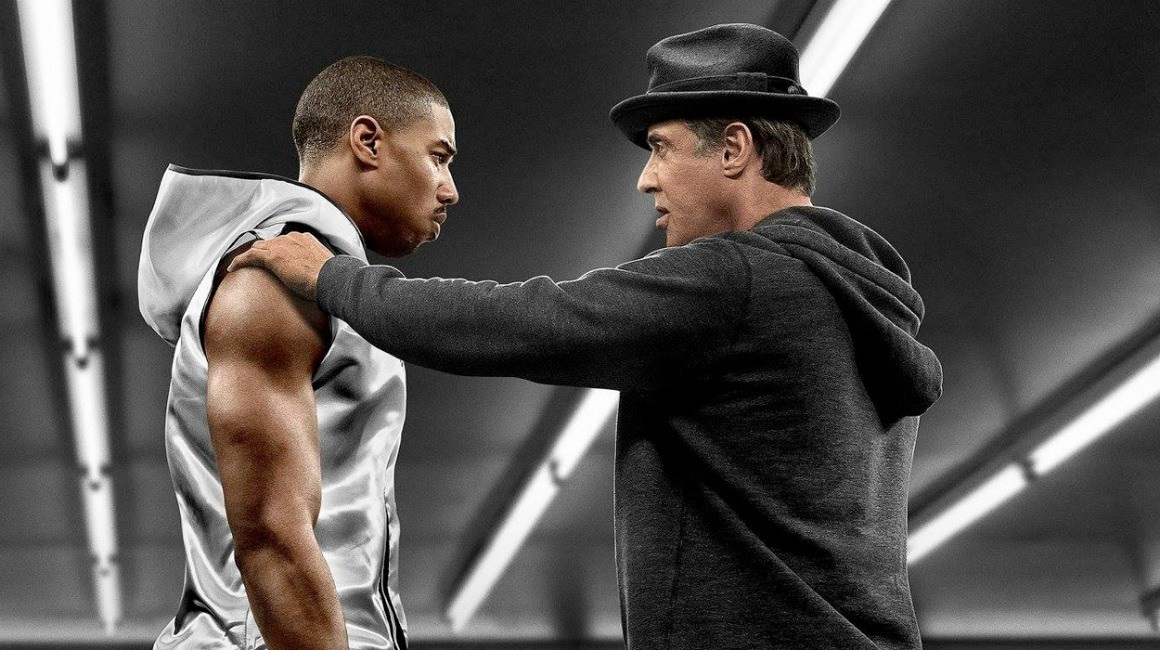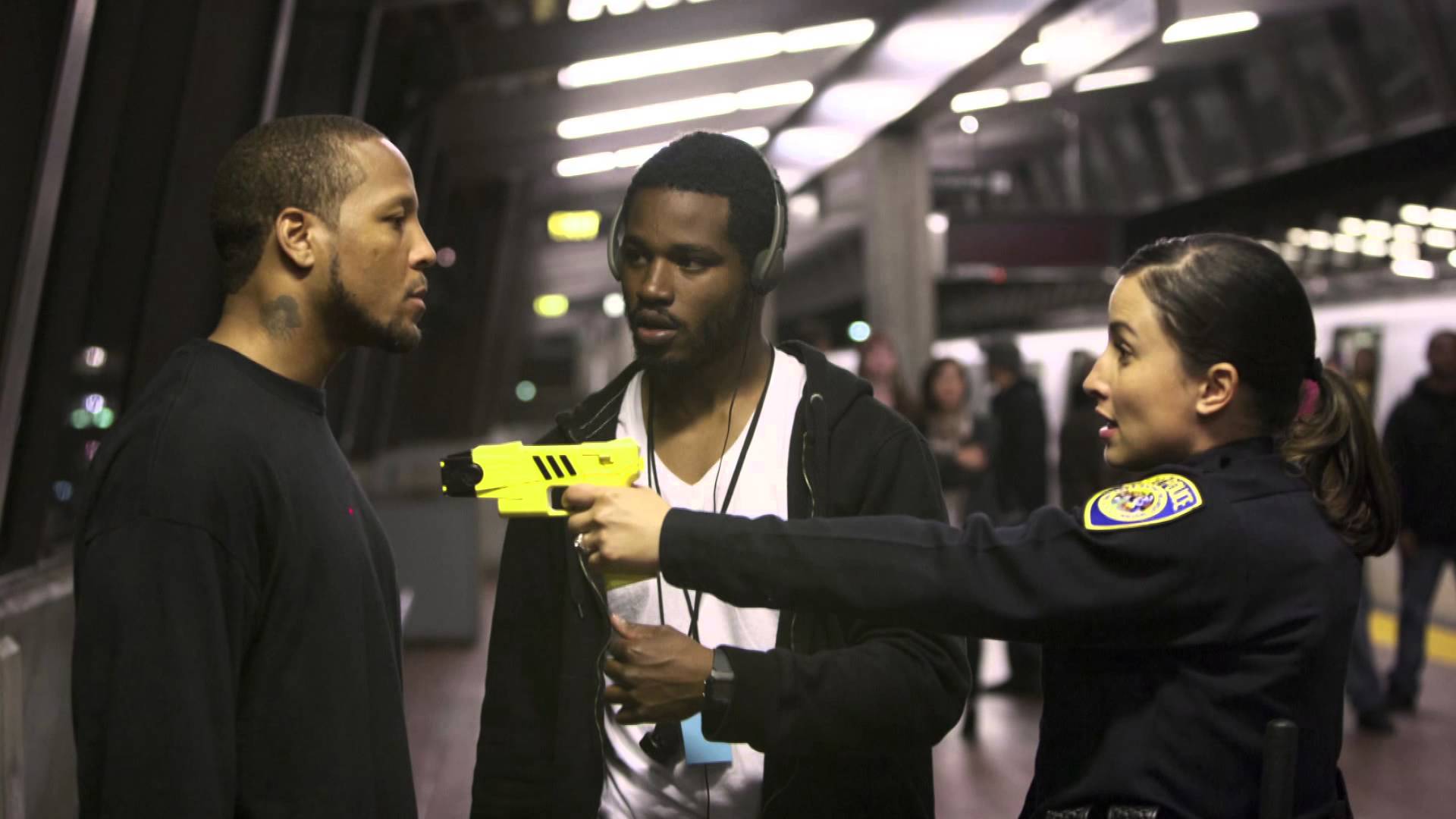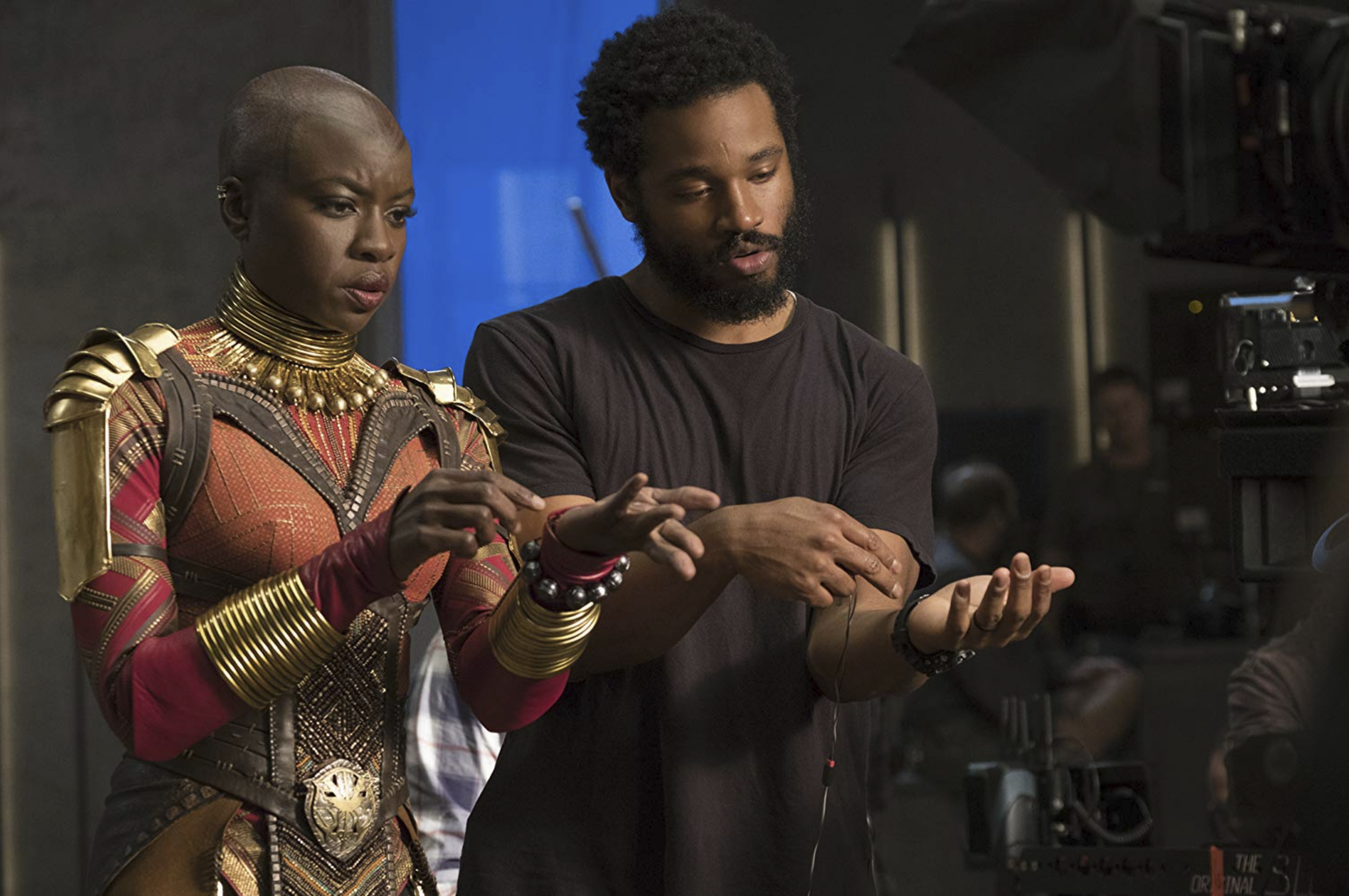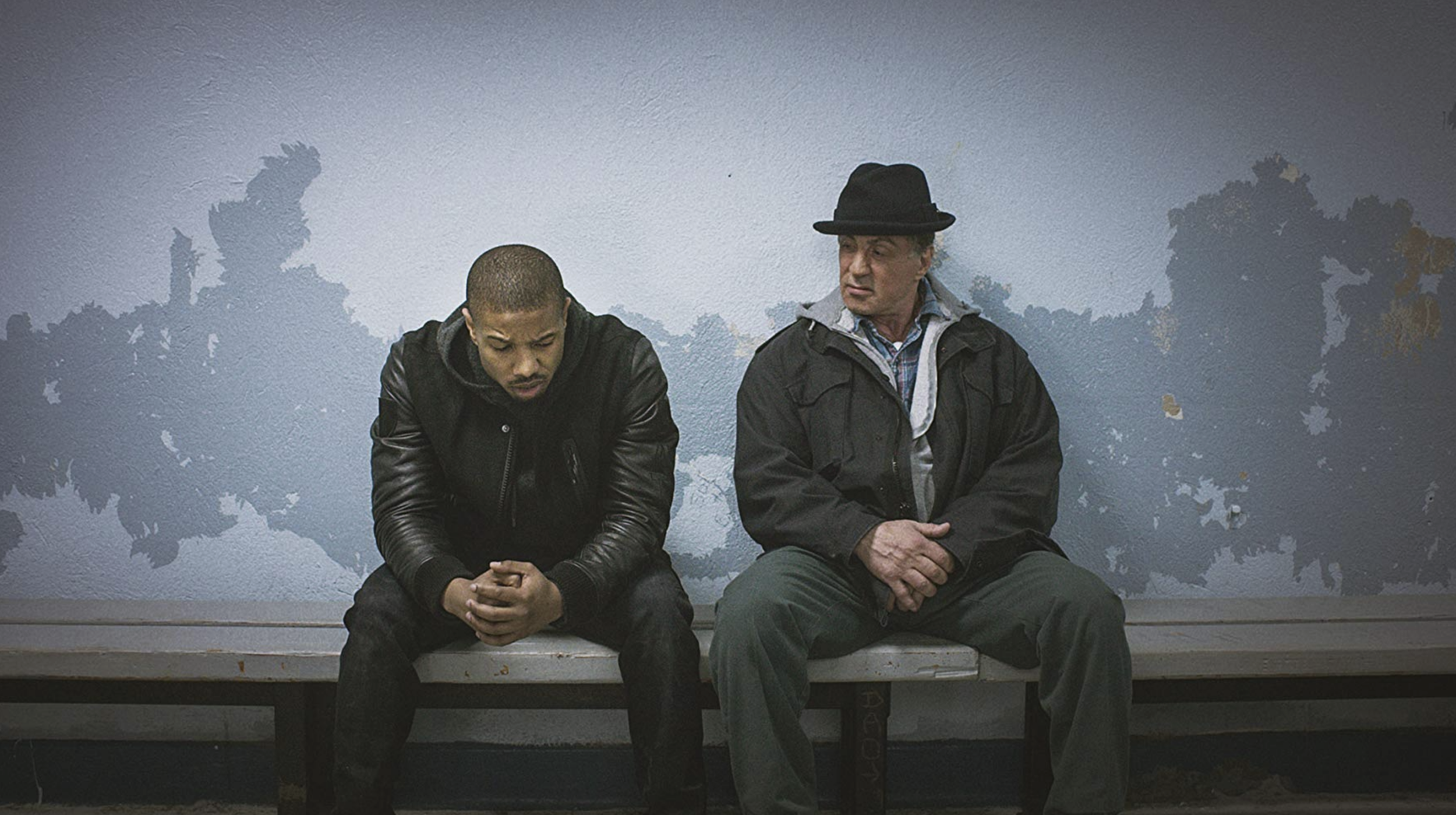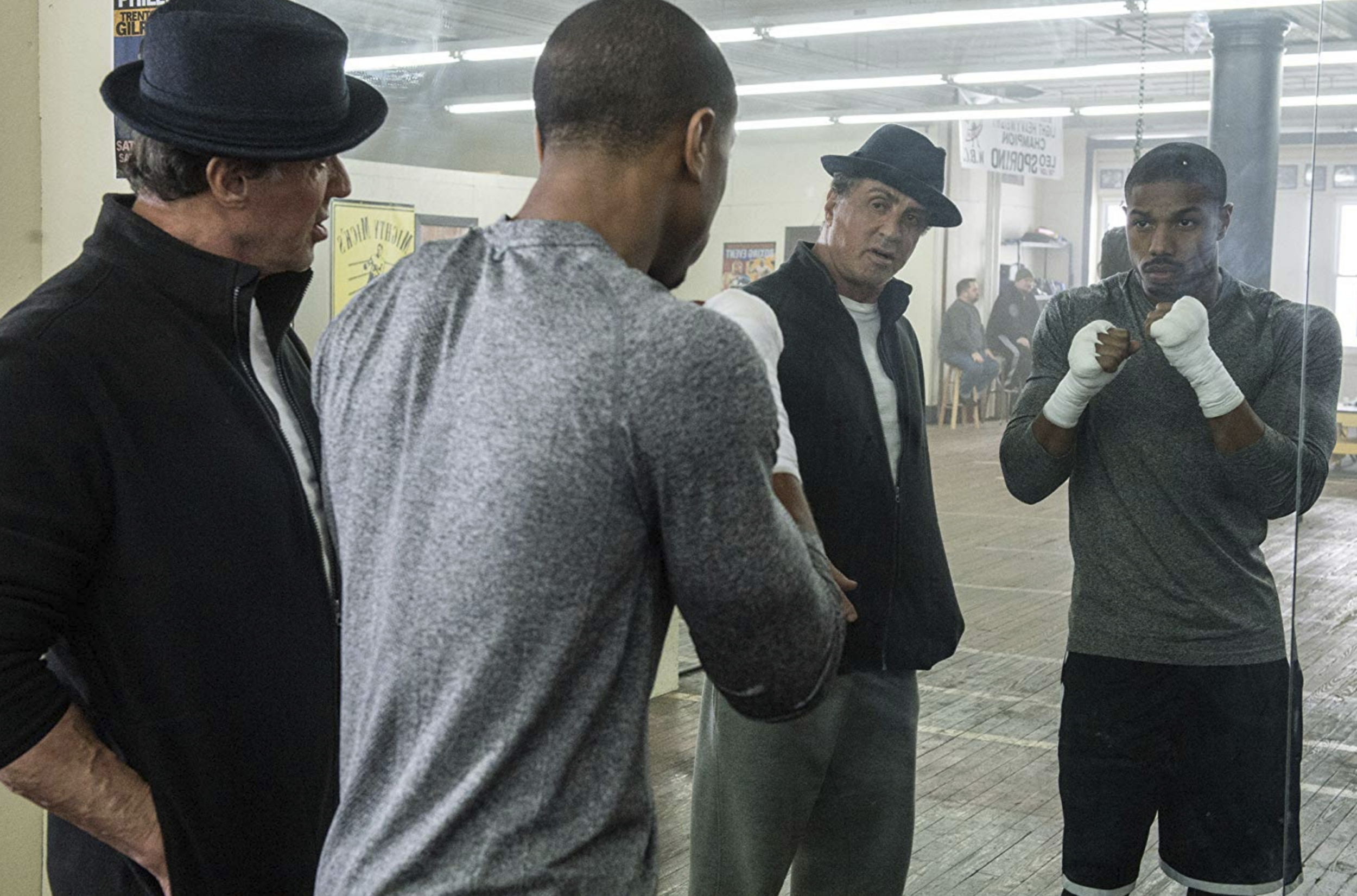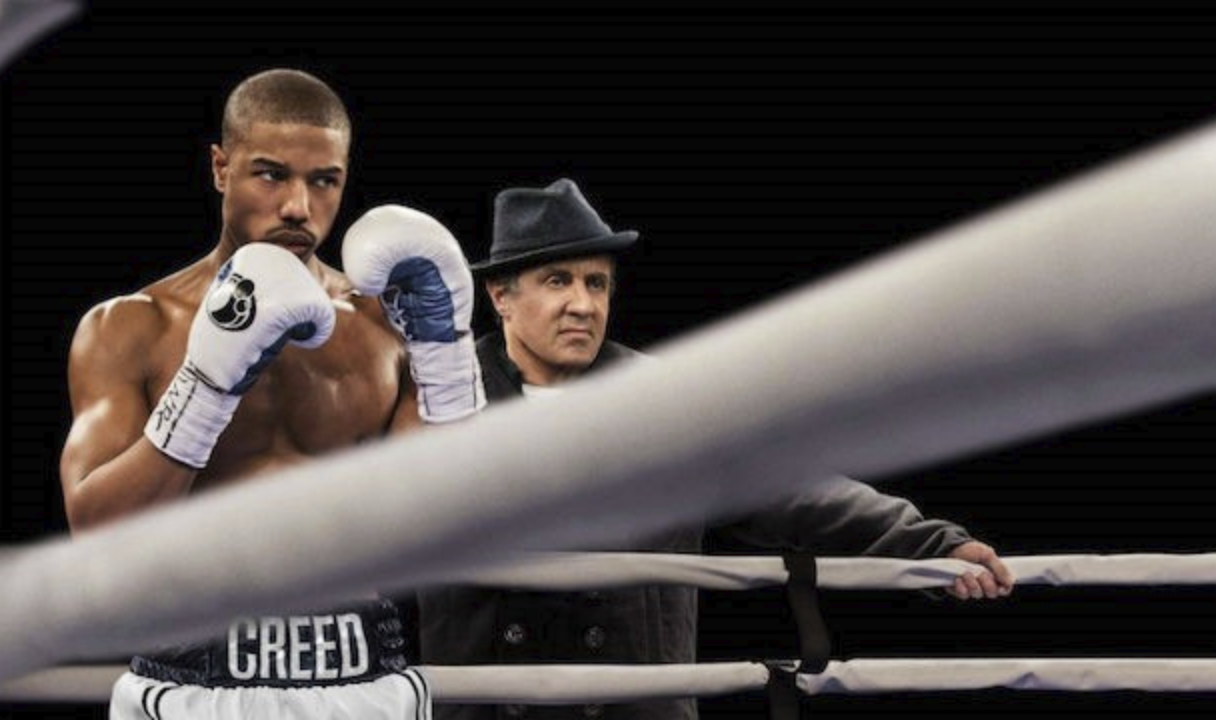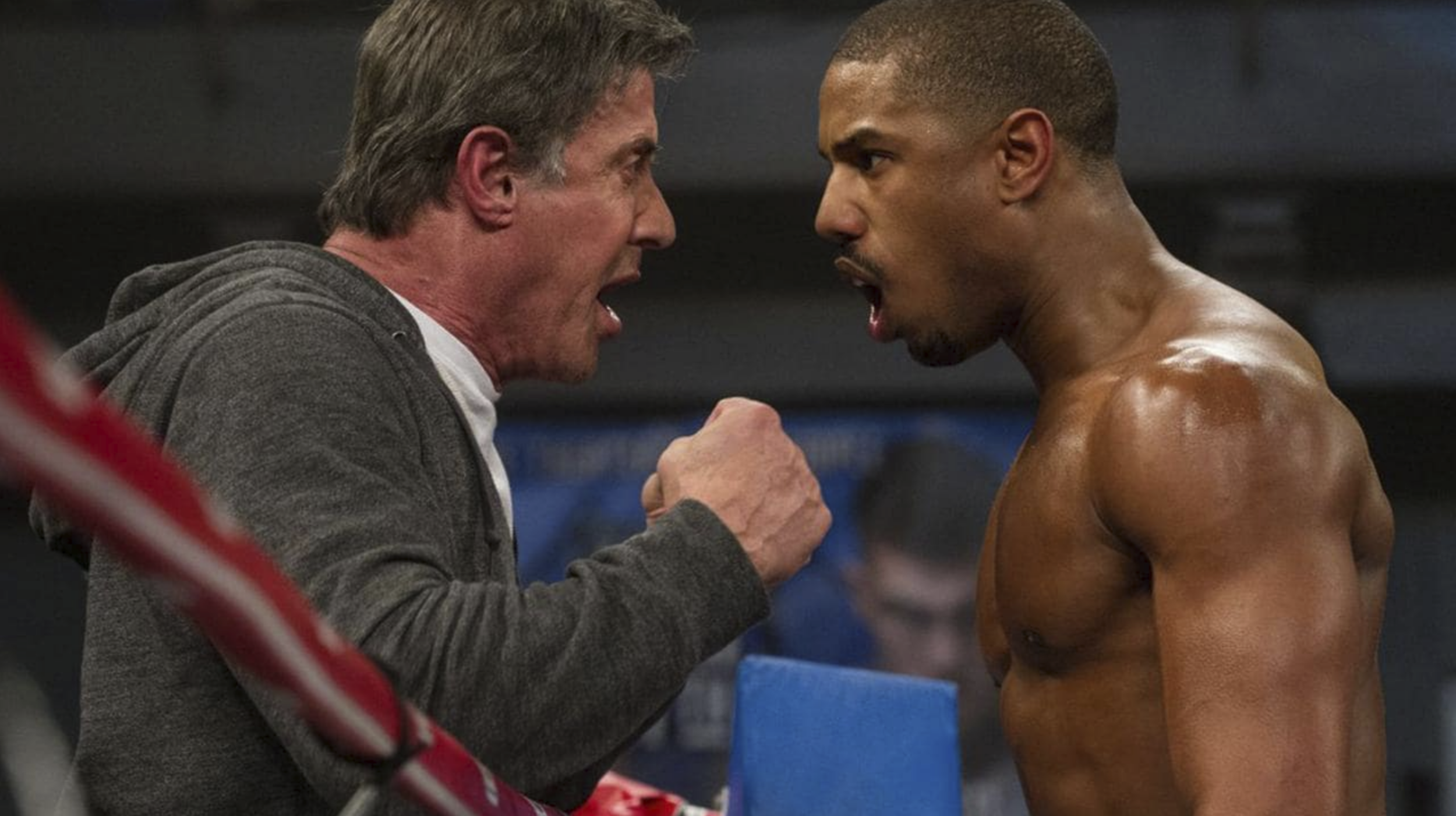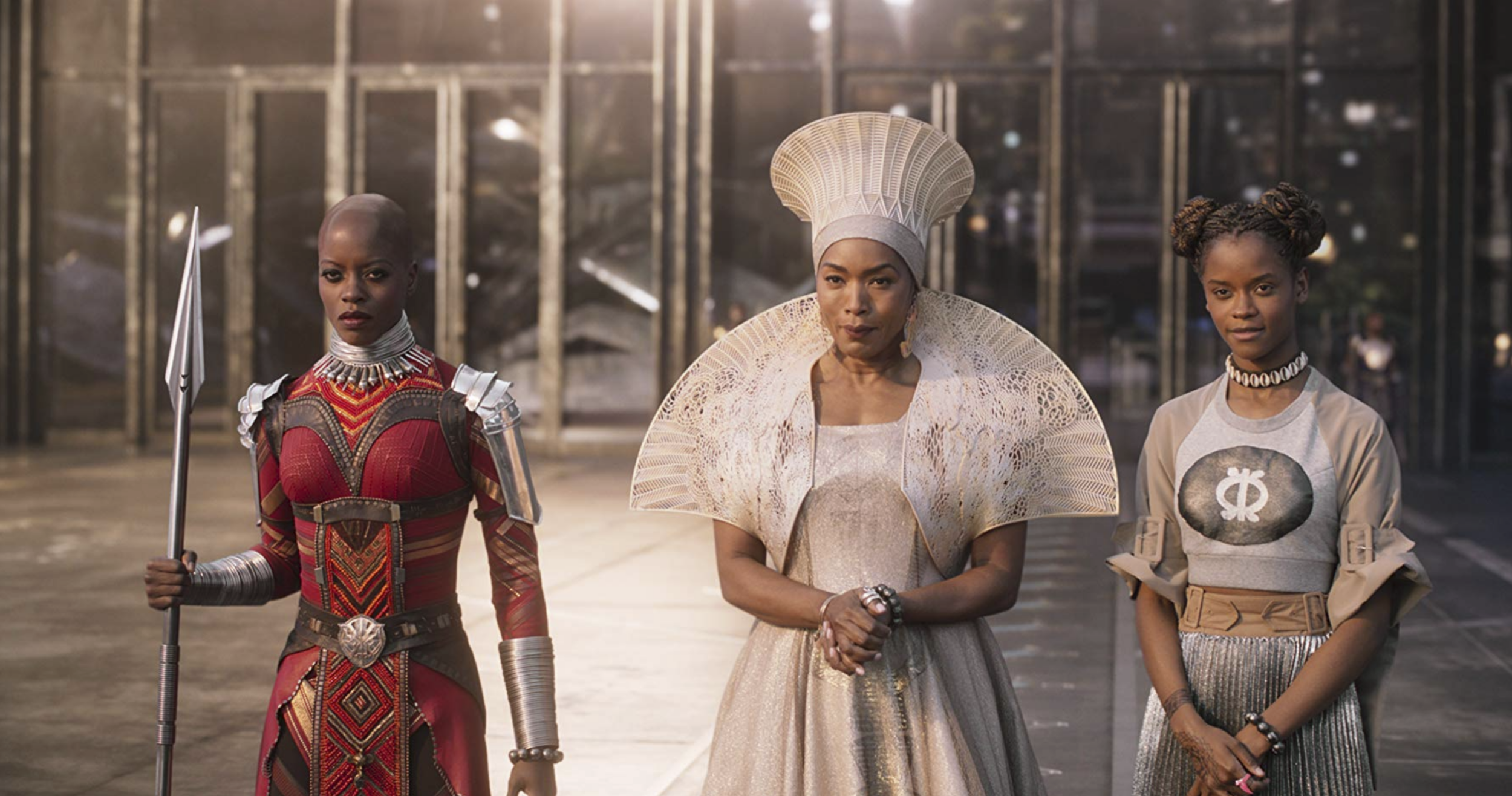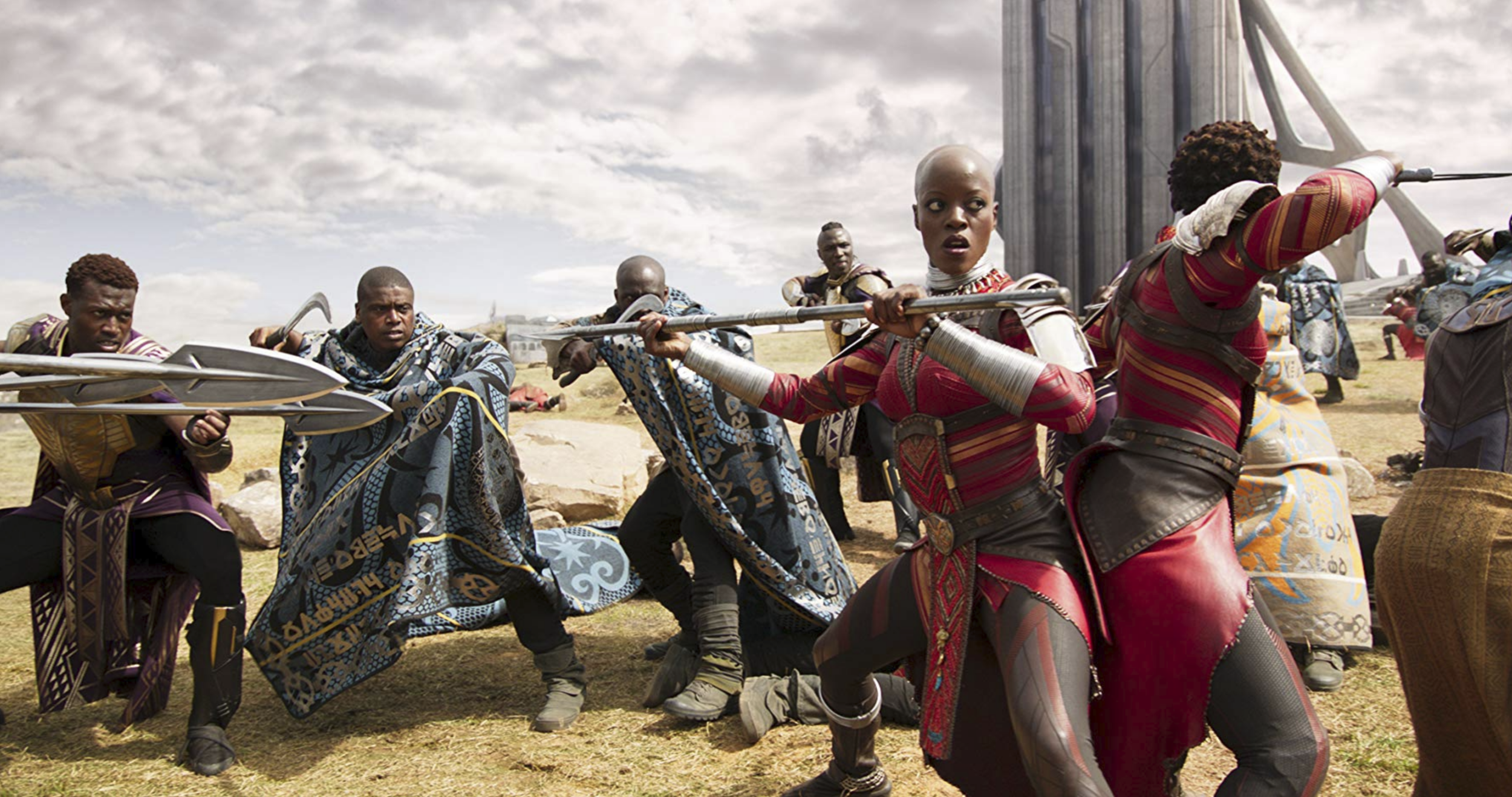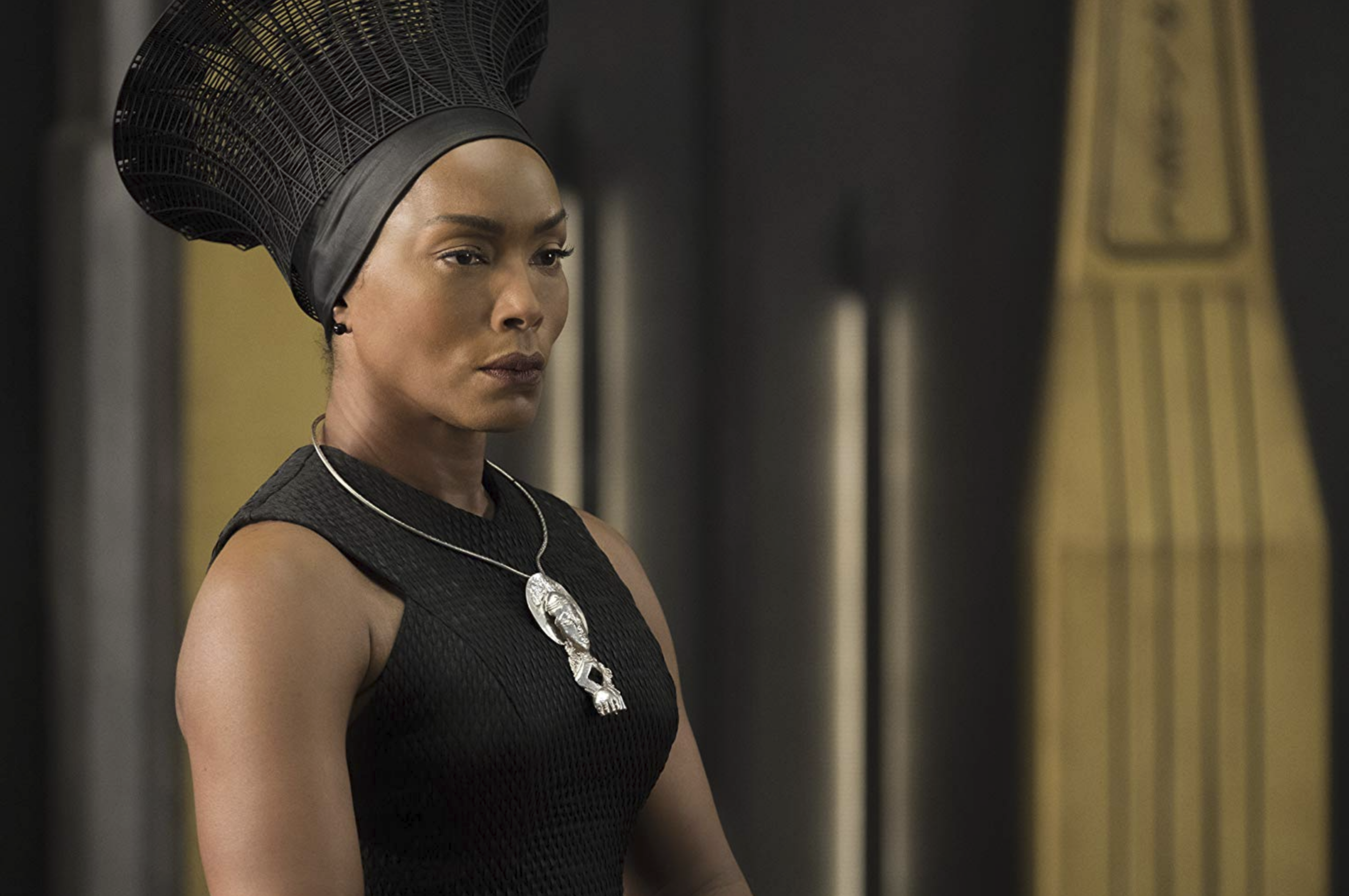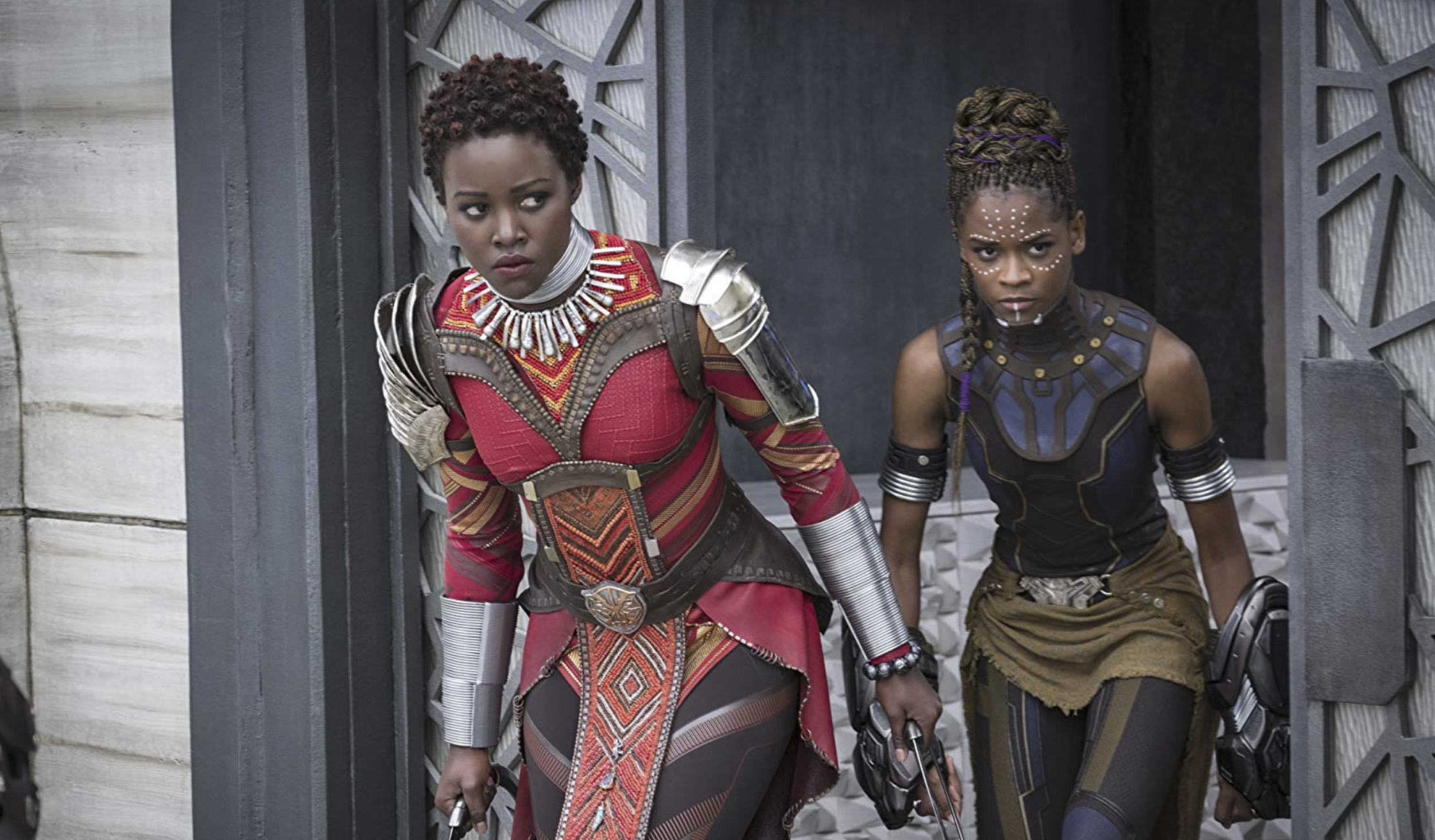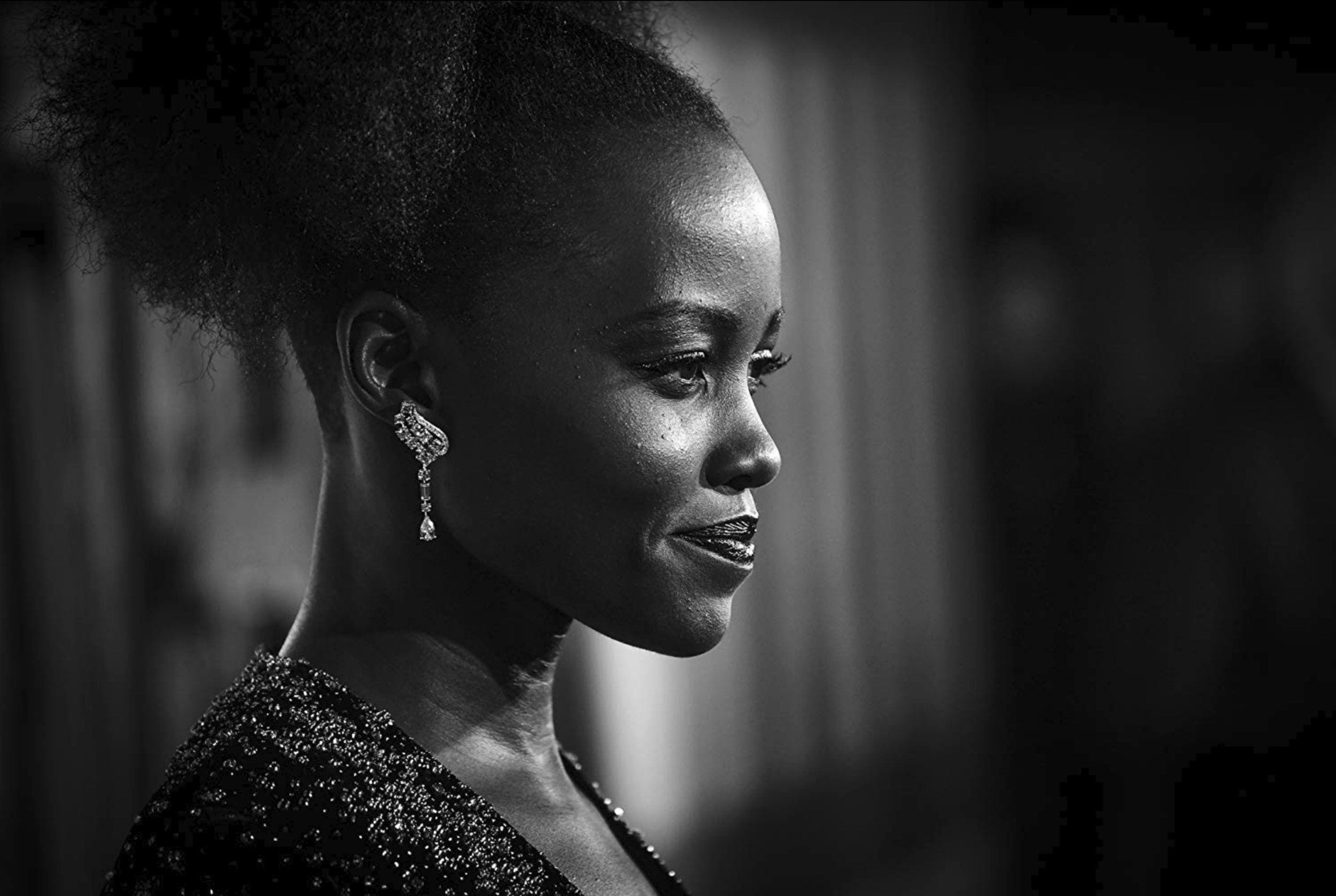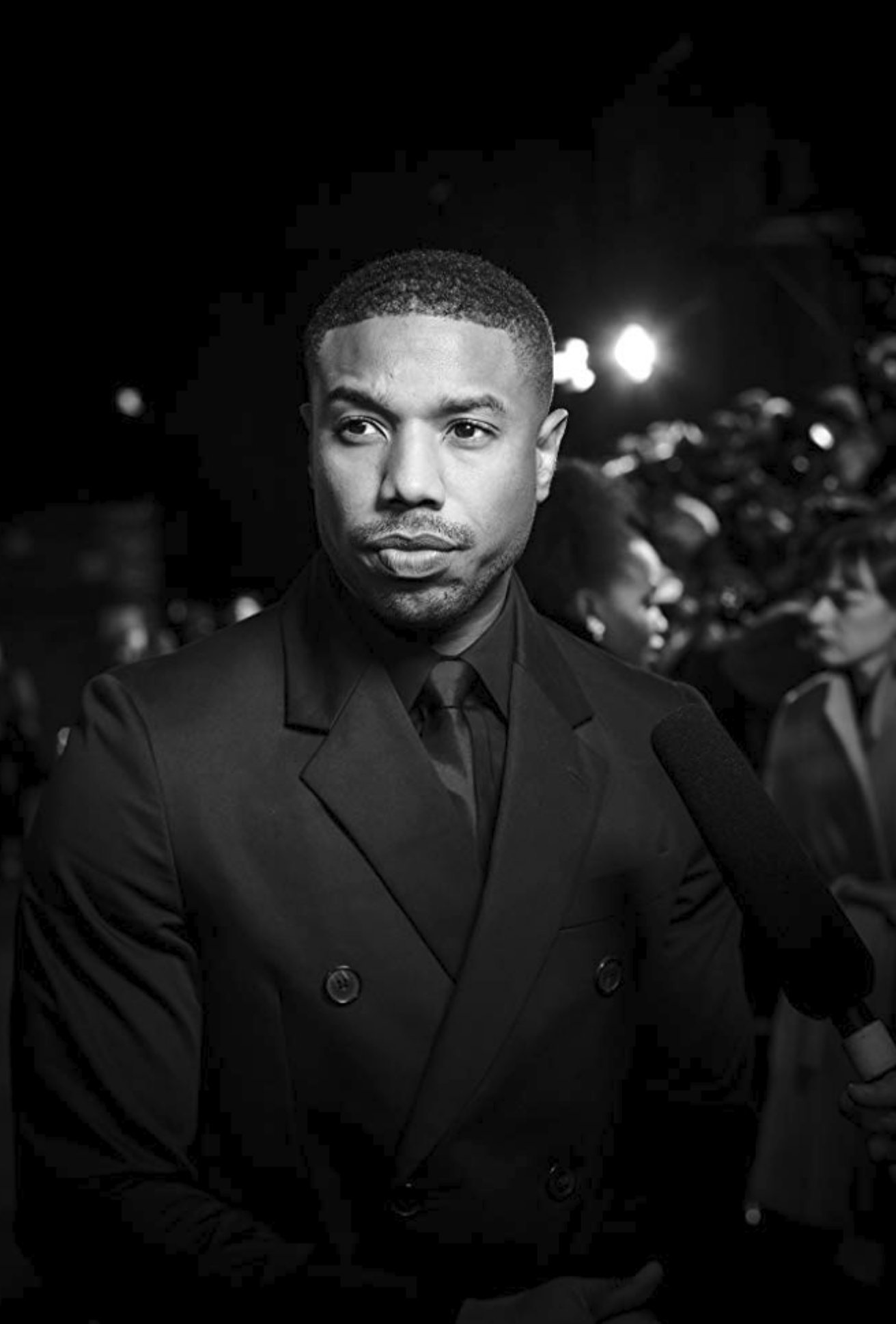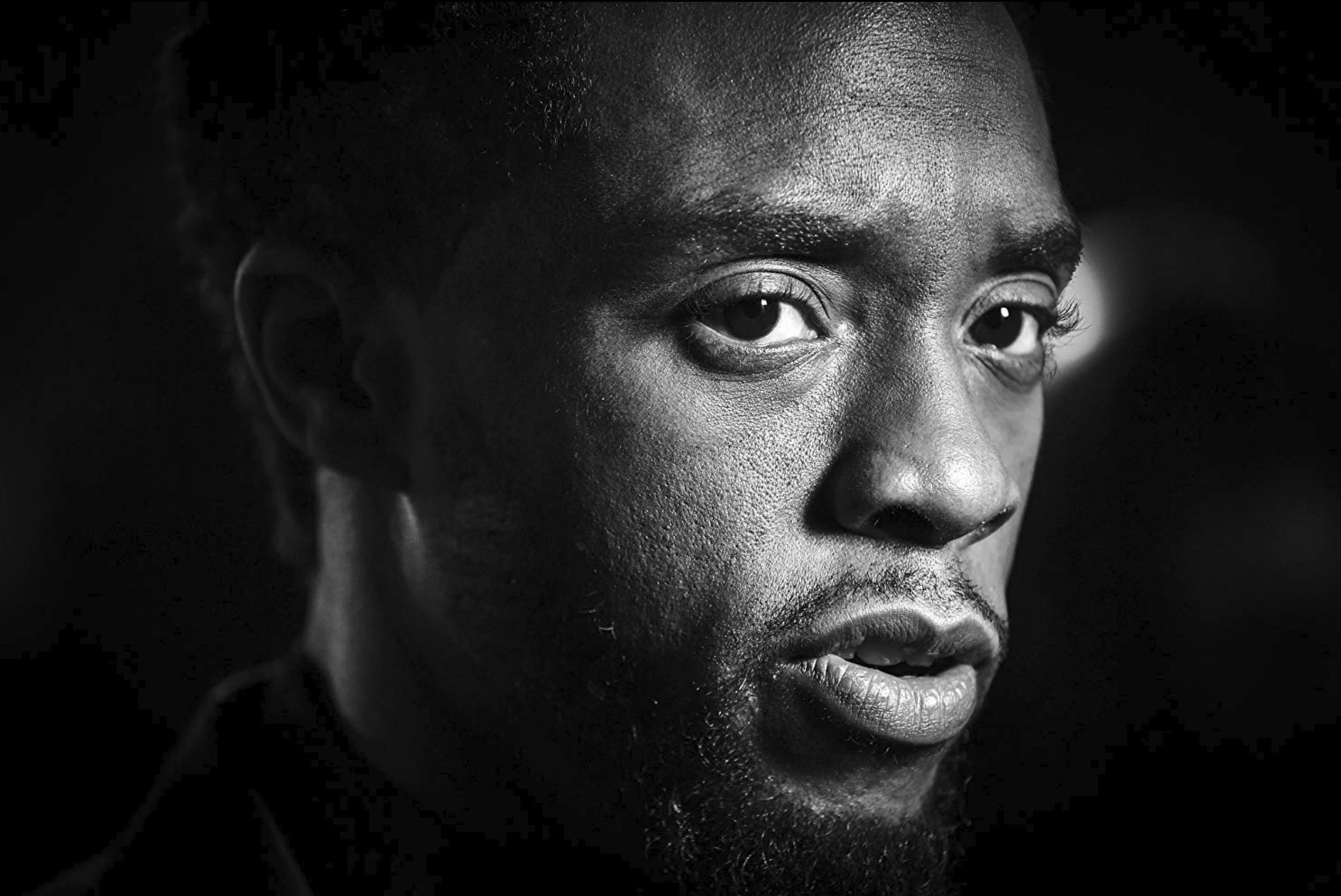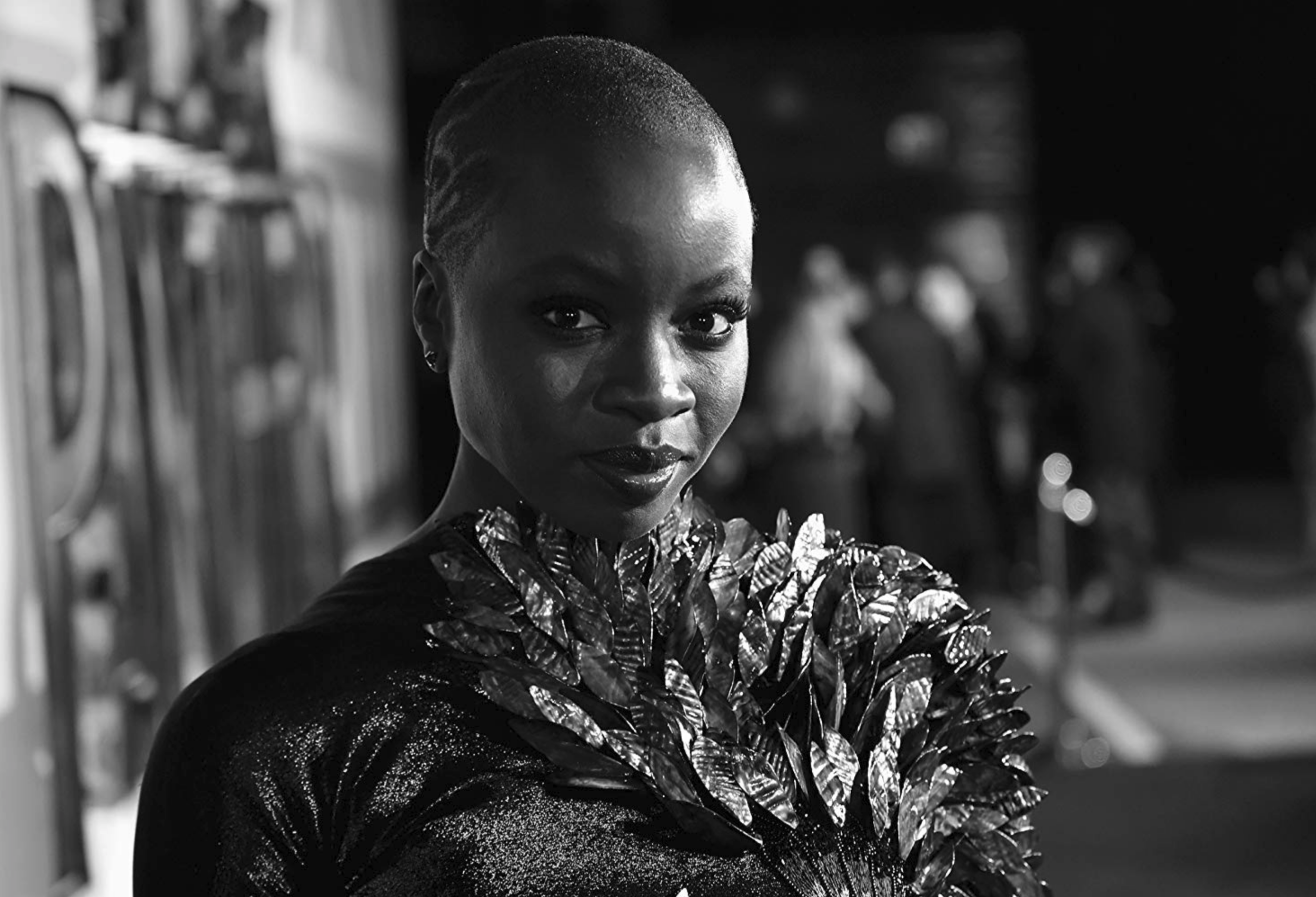I AM Ryan Coogler: Masterclass
Black Panther (2017) feat. Chadwick Bosman as T’Challa/Black Panther © Disney/Marvel Studios
Multiple award-winning director of modern black cinema Ryan Coogler took centre-stage for an exclusive ‘Rendez-vous’ Masterclass event celebrating his career at the Festival de Cannes this year.
With friend and film critic Elvis Mitchell interviewing Coogler; they discussed his recent successes, the international growth of black cinema, embracing black culture, and the life experiences that come with creating blockbuster films as a young director.
This rare and candid interview provides a unique insight into Coogler’s artistry and his meteoric rise to become one of the most sort after young directors in Hollywood today.
EM: Okay, I guess the first thing I want to bring up with you is—all of your films have really been family dramas, haven't they? I think with Fruitvale, Creed and Black Panther, they're all finally and first and foremost family dramas, aren't they?
RC: Yes, I think they are. I would look at them like that for sure.
EM: This feels like a trilogy to me because there are three movies about what happens to young black men without fathers in America. You look at Fruitvale, Creed, Killmonger, and Black Panther; I mean, that's, to me, the thing that brings them all together.
What is it about that subject that you keep going back to?
RC: I think it's not something that I'm consciously going forward with on each project. It was probably more subconsciously...You know, ‘cause Fruitvale was a real story that happened. I didn't know anything about Oscar’s life before he was murdered and I wanted to make a film about it.
It wasn't until I started to do research, that I found out that Oscar's father had been incarcerated his whole life and is still in prison now. He didn't ever have his dad.
Creed (2015) Official Trailer
For Creed, that film was about the relationship that I had with my father. That was kind of the motivation there. The father-son relationship there was kind of like a what if? You know - what if my dad wasn't in my life? What if he was just a guy I just heard about and I had to live up to?
You know, I always had my dad, and then with Killmonger (Black Panther), that was something specific that we built around the story.
My father was the most unique relationship that I had in my life because a lot of my friends didn't have fathers growing up, and oftentimes there was a tension there between me and my friends because my dad was around. It was something that I have always been interested in.
That dynamic—that father-son dynamic—and with that, what it means specifically in the home in an African-American community…. and now with Black Panther, we kind of extended it to the African community.
EM: You've made three movies where you had a woman cinematographer and a woman editor.
RC: I mean, it's not something to brag about...
EM: I don’t know, it’s not something that’s common!
RC: Yeah, I mean, honestly, for my first film, I was just looking for the best cinematographer I could find. Rachel Morrison was that. She was the best DP we could get at the time. You know it turned out that I thought I was getting somebody amazing....but she turned out to be incredible! Just phenomenal in every way and our dispositions kind of matched each other.
Then, when it came time to shoot Creed, Rachel was pregnant. Not just like a little bit pregnant, but like, due while we would have been shooting, you know?! She's really lovely and sweet. But she’s also mad intense and almost like...militarised.
When it comes to filmmaking she's like: “Nah, I'll be out for like two days, I'll squeeze the baby out, and then, I’ll come back and pick the camera back up!”
Courtesy @Rmorrison Rachael Morrison Instagram
You know, that was literally what she was saying. And I'm like, “I don't think that's gonna work on this one.” So, we ended up not working out. And then, what ended up happening for that one—you know, the best cinematographer that we could get for Creed, the most qualified was a woman by the name of Maryse Alberti. She was actually French and she has shot The Wrestler.
The Wrestler was something that Rachel and I would watch when we were thinking about Fruitvale. When it comes to like the physical combat of it. And in Creed, for me, a bit of it was commentary on people who work with their bodies for their occupation. I thought what Aronofsky and Maryse did in The Wrestler, was one of the more visceral things I've seen about that.
Maryse Alberti on set for Creed (2015) with Ryan Coogler - courtesy of Warner Bros.
And then, when Panther came around, you know, Rachel wasn't pregnant. So why lose her? She was like: “Let's go! I’m able to do it!”
EM: What was the first thing you shot on Black Panther?
RC: The first scene of the film you see the kids playing and you find out that it's Killmonger later. When we got there people were like, “Oh yeah, you know that church right there, that's where Martin Luther King is buried. By the way, his daughter is here and she wants to say what’s up to you guys.”
It was like our first day shooting and Bernice was was there shaking everybody's hand saying, “I'm hoping for the best, it's cool you chose to shoot this here,” and I'm like “Oh yeah.” But I didn't even know it! We came to the shoot the first day and met Martin King's daughter who looks just like him—it's crazy!
R-L Bernice King, Martin Luther King Jnr.
EM: What was the most daunting moment after you got that call and you decided you wanted to make it? Because, there are certain people who told you it was a bad idea to make this movie.
RC: The most daunting moment, I think - I mean, it was filled with daunting moments, man. Making a movie, you know, it's hard man. I remember in film school we’d be shooting a movie for like one day and at the end of the day I’d be like “I'm gonna die!”
“I would say right around the time you say, ‘Yes, we’re gonna do this thing,’ it’s like crazy because you realise either this thing is gonna work or it’s not and there’s a good chance my life will be different either way after this. ”
EM: What was your first meeting like with Forest Whitaker?
RC: Wow, the first time I met Forest I was still in film school. I was finishing up my last year of graduate school and a teacher asked me if I liked Forest Whitaker. I was all like “Of course I like Forest,” and they were like “Well, there’s a woman that's running his production company and she reached out looking for filmmakers to meet.” So, that was how I got in contact with him.
I met with this woman named Nina Yang. She became the producer of Fruitvale. I met with Nina a couple of times, and then she was like “I really like talking with you. I want you to think about three movies that you want to make and I want you to pitch all three of them in front of Forest.”
So, I came to school with a tie on. I figured if I dressed nice he wouldn't notice how inexperienced I was. I gotta meet with him and I remember he was just dressed like super casual. I was the only idiot in there with a tie on!
I'm just kind of telling him about all these ideas and I'm like super nervous, and then, I get to Fruitvale and I'm like: “This is the one I want to make. This is the one I would make regardless of whether you say you want to make something with me or not. This is the one I'm feeling in my heart.”
Fruitvale (2013) - Official Trailer
And as I was telling him about it I got less nervous, and he was like “I don't know why you told me about that other stuff. You know this is the one I want to make with you.” So, he kind of just green lit it right there in the room. He's like, “Cool, let's make it!” and he walks out, and then Nina starts jumping up and down. I'm like “Man, what's happening right now?” She's like, “We gonna make it. We gonna make this movie. It’s so exciting!”
And so, I went home and stayed up all night trying to outline the whole thing. I sent that to Nina and I'm like “Yo, we still making this right? We still on?” She's like “Yeah, no, of course.” Obviously, he didn’t change his mind and we made the movie.
EM: When you were doing Creed did you know you wanted Michael B. Jordan from the outset for that?
RC: I came up with the idea for Creed while my dad was sick. I knew I wanted to make Creed kind of even before Fruitvale got going. While I was writing Creed he got really, really, really sick and that was when I was like; I gotta make this because I thought we were gonna lose him. I gotta figure out a way to to get this idea in front of Stallone, before he passes away.
So, while we were prepping Fruitvale I would talk to Mike about it. Then, while we were basically scouting, getting ready to shoot Fruitvale, I got my first meeting with Stallone. I had to fly down and meet with him and pitch him on the idea. He said “No”.
CRITICS CHOICE AWARDS (2016)Sylvester Stallone Wins Best Supporting Actor for Creed
EM: What happened the second time you saw him, if he said “No” the first time?
RC: I mean, I had a movie the second time. We finished Fruitvale and it came out, and then after that I was like, “Would you reconsider?” And he was like “Yeah, I'm down to do it.”
But it was funny: (the first time) I didn't have a movie, I didn't have anything. I was just meeting him ‘cause I had an idea. So he didn't go for it. I don't blame him for saying “No”.
EM: At what point does Mike come into that idea?
RC: I'd told Mike about it while we were making Fruitvale. I was just talking and I wanted to see if he was interested in it and he was like “I'll be open to it.” Then, by the time that Creed came about we were closer; we had finished the movie and he was like, “I gotta be in that” at that point. I thought he was right for it as well.
Michael B. Jordan and Chadwick Boseman in Black Panther (2018) - courtesy of Marvel/Disney
EM: Then for Panther?
RC: Panther was different. For Panther, I inherited Chadwick Boseman who was the lead actor in that film, as he had already played in the Russo brothers film Civil War. So, Black Panther was cast and had a really great actor who is very different from Mike.
In developing the script I knew I wanted to have an antagonist that could kind of go toe-to-toe with him, and we came up with the idea of who Killmonger was. It made sense that it should be Mike. So, that’s when I went to him and asked if he would be willing to be in the film.
EM: The women are as important and that's the thing that makes Black Panther so extraordinary—among the many things - the women are as important to the defense of Wakanda and to the story, to the emotional life of T'Challa and Wakanda—as the men.
RC: I mean, that's there in the comic books; they’ve got the Dora Milaje who protect the king, this all-female guard. And I think it's true of African society as well. Wakanda is kind of like a ‘What we could be’ idea. People call it a utopia and some people call it a dream state - something to shoot for.
But the idea in Wakanda is that everybody is allowed to have their fullest potential realised. They try to maximise everybody's potential because they are all they have.
A lot of times, in comic books, there is kind of like a little bit of tokenism; you got one black person and only one woman fights. So for us, it's like, we got these books where there’s maybe four or five of these women that are all different, and I thought that was really exciting.
EM: You could have elected not to do that version. You chose to exercise that idea that women are as important to the society as the men.
RC: I think that you can argue that they’re more important. With Wakanda, there’s a whole section of the film where T’Challa’s out of the movie, and you’re just following the women. It's one of my favorite parts of the movie when I watch it, and I didn't expect that.
We have these actresses who could easily carry their own movie. You know...some of them have before. We were so fortunate.
EM: In American film, whenever a black film is successful it's like the equivalent of finding a hundred dollars in the street. It's like this non-repeatable phenomena, it could never happen again! God knows that it happened!
RC: At the end of the day: it’s a business. The business is informed by all of these things that life is informed by; colonisation, institutional bias, and racism. The business was built amongst all these things.
My dad would tell me there was a time when owners of American baseball teams would say, “Hey, I don’t know if we put black and Hispanic players on the field, whether people will still come to the games.” There was a time in basketball where there were no black people in the NBA. It was because people thought that people wouldn't come to the games.
I was born in ‘86, came up in the ‘90s. I'll turn on the TV, I think of the NBA, and everybody's black. Everybody in the stands is usually a mix of black, mostly white, but they got on the black player’s jerseys.
“So, for me, it was like ‘Why can’t we have more black movies?’ People said these films won’t travel. But, for us, it was the issue of - we don’t know if that’s the case.”
It was great to have partners in Marvel who were excited about that and Disney were excited about that as well.
EM: Just because you have changed the way movies travel, you haven't changed the people that make the decisions.
RC: I just hope that changes man, it's gotta change. I've heard Fincher talk about film and he'll say, “Film is fashion.” Nobody really knows what works. But people are gonna chase what has worked before it. I hope that we can lead it. I hope that me and you can leave the business in a better way than we found it.
You know, my mind is being stretched and inspired in terms of what we as a people and as artists can do. I think that staying tapped into this community has also helped. I feel like we are kind of our own answer, you know what I mean?
Ryan Coogler directing Chadwick Boseman in Black Panther (2017) - courtesy of Marvel/Disney
EM: Okay, well for the last question let me ask you this. Basically, everything you've done has been, in a way, an adaptation. Fruitvale is a real story, Creed is kind of your lift and you're moving Rocky to the next thing. Black Panther is something where you sort of took this bunch of ideas and added your own thing to. Do you want your next thing to be an original?
RC: That's a great question. I'm not sure. I'd love to make something original one day. I really would. But, at the same time - I think that there’s also no shame in adapting stuff. You know, a lot about Kubrick—and I'm saying Kubrick is one of the great filmmakers—one of the ones that paved a lot of trails—he almost always adapted something. So, I think that adaptations are great as well. But I hope to make something original sometime soon.
EM: Let's thank this man for being here.
RC: Thank you guys!
Ryan Coogler’s Black Panther, which is the 2nd top-grossing Superhero film of 2018 behind Avenger’s Infinity War, has just been nominated for a Best Picture Golden Globe and also received nominations in the Music, Hair and Make-up, and Visual Effects categories.
Academy Award nominees will be announced in late January 2019, with high hopes for Coogler to be nominated alongside his critically-acclaimed cast and crew.
You can follow I AM FILM on Instagram (iamfilmofficial) #IAMFILM #MastersOfFilm and Join our list to receive more news and views by the Masters Of Film.
Special thanks to new contributor Haydon Whipp for the edited transcript.
ABOUT THE FILMMAKER
Ryan Coogler
WRITER AND Director
Ryan Coogler (born May 23, 1986) is an American film director, producer, and screenwriter. His first feature film, Fruitvale Station (2013), won the top audience and grand jury awards in the U.S. dramatic competition at the 2013 Sundance Film Festival. He has since co-written and directed the seventh film in the Rocky series, Creed (2015), and the Marvel film Black Panther (2018), the latter of which broke numerous box office records and became the highest-grossing film of all time by a black director.
Coogler's films have received significant critical acclaim and commercial success. In 2013, he was included on Time's list of the 30 people under 30 who are changing the world. His work has been hailed by critics for centering on often overlooked cultures and characters—most notably black people. He frequently collaborates with actor Michael B. Jordan, who has appeared in all of his feature films, as well as composer Ludwig Göransson, who has scored all of his films. In 2018, he was named the runner-up of Time's Person of the Year. [Source: Wikipedia]


